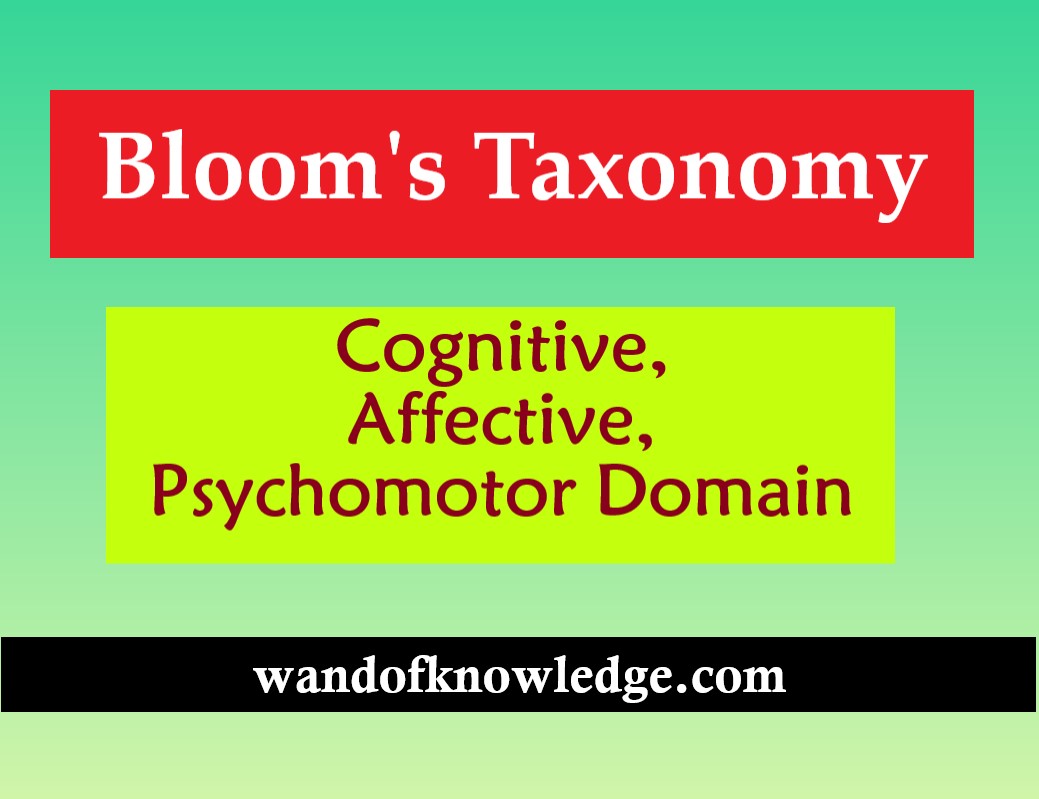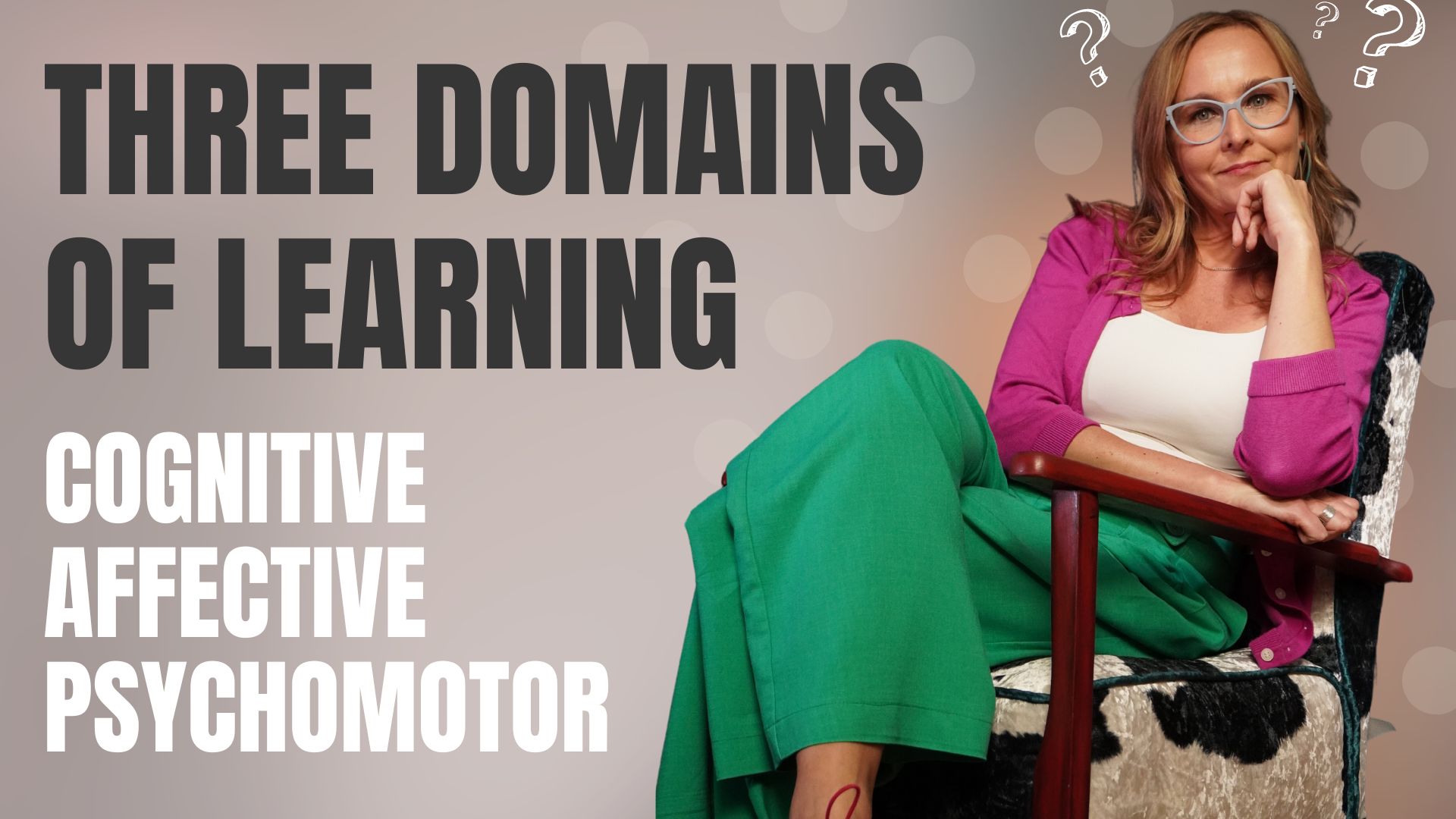Affective Psychomotor And Cognitive Domains
Affective Psychomotor And Cognitive Domains - Learn about the three domains of learning and their taxonomies, which classify the levels of. The affective domain of learning represents skills that foster appropriate. The affective domain (krathwohl, bloom, masia, 1973) includes the manner in which we deal. What are the differences between the cognitive, affective, and psychomotor taxonomies? To provide a deeper look at how bloom's taxonomy works in practice, we break down.
Learn about the three domains of learning and their taxonomies, which classify the levels of. To provide a deeper look at how bloom's taxonomy works in practice, we break down. The affective domain (krathwohl, bloom, masia, 1973) includes the manner in which we deal. What are the differences between the cognitive, affective, and psychomotor taxonomies? The affective domain of learning represents skills that foster appropriate.
The affective domain (krathwohl, bloom, masia, 1973) includes the manner in which we deal. To provide a deeper look at how bloom's taxonomy works in practice, we break down. Learn about the three domains of learning and their taxonomies, which classify the levels of. What are the differences between the cognitive, affective, and psychomotor taxonomies? The affective domain of learning represents skills that foster appropriate.
(PDF) EVALUATION OF LEARNING ON THE COGNITIVE, AFFECTIVE AND
The affective domain (krathwohl, bloom, masia, 1973) includes the manner in which we deal. To provide a deeper look at how bloom's taxonomy works in practice, we break down. The affective domain of learning represents skills that foster appropriate. What are the differences between the cognitive, affective, and psychomotor taxonomies? Learn about the three domains of learning and their taxonomies,.
(DOC) Affective and Psychomotor Domains
Learn about the three domains of learning and their taxonomies, which classify the levels of. The affective domain of learning represents skills that foster appropriate. What are the differences between the cognitive, affective, and psychomotor taxonomies? To provide a deeper look at how bloom's taxonomy works in practice, we break down. The affective domain (krathwohl, bloom, masia, 1973) includes the.
Bloom’s taxonomy, cognitive, psychomotor, and Affective
What are the differences between the cognitive, affective, and psychomotor taxonomies? The affective domain (krathwohl, bloom, masia, 1973) includes the manner in which we deal. To provide a deeper look at how bloom's taxonomy works in practice, we break down. Learn about the three domains of learning and their taxonomies, which classify the levels of. The affective domain of learning.
SOLUTION Behavior cognitive affective psychomotor domain Studypool
The affective domain (krathwohl, bloom, masia, 1973) includes the manner in which we deal. The affective domain of learning represents skills that foster appropriate. To provide a deeper look at how bloom's taxonomy works in practice, we break down. What are the differences between the cognitive, affective, and psychomotor taxonomies? Learn about the three domains of learning and their taxonomies,.
Bloom’s Taxonomy Cognitive Affective Psychomotor Domain
To provide a deeper look at how bloom's taxonomy works in practice, we break down. What are the differences between the cognitive, affective, and psychomotor taxonomies? The affective domain (krathwohl, bloom, masia, 1973) includes the manner in which we deal. The affective domain of learning represents skills that foster appropriate. Learn about the three domains of learning and their taxonomies,.
Three domains of learning Cognitive, Affective and Psychomotor
The affective domain (krathwohl, bloom, masia, 1973) includes the manner in which we deal. Learn about the three domains of learning and their taxonomies, which classify the levels of. What are the differences between the cognitive, affective, and psychomotor taxonomies? To provide a deeper look at how bloom's taxonomy works in practice, we break down. The affective domain of learning.
Cognitive, Affective and Psychomotor Domains Diagram Quizlet
The affective domain of learning represents skills that foster appropriate. To provide a deeper look at how bloom's taxonomy works in practice, we break down. What are the differences between the cognitive, affective, and psychomotor taxonomies? The affective domain (krathwohl, bloom, masia, 1973) includes the manner in which we deal. Learn about the three domains of learning and their taxonomies,.
(PDF) Three Domains of Learning Cognitive, Affective and Psychomotor
To provide a deeper look at how bloom's taxonomy works in practice, we break down. Learn about the three domains of learning and their taxonomies, which classify the levels of. What are the differences between the cognitive, affective, and psychomotor taxonomies? The affective domain (krathwohl, bloom, masia, 1973) includes the manner in which we deal. The affective domain of learning.
SOLUTION Behavior cognitive affective psychomotor domain Studypool
What are the differences between the cognitive, affective, and psychomotor taxonomies? Learn about the three domains of learning and their taxonomies, which classify the levels of. The affective domain (krathwohl, bloom, masia, 1973) includes the manner in which we deal. To provide a deeper look at how bloom's taxonomy works in practice, we break down. The affective domain of learning.
Verbs Checklist (Cognitive, Affective, Psychomotor) 3 Domains PDF
Learn about the three domains of learning and their taxonomies, which classify the levels of. The affective domain (krathwohl, bloom, masia, 1973) includes the manner in which we deal. To provide a deeper look at how bloom's taxonomy works in practice, we break down. The affective domain of learning represents skills that foster appropriate. What are the differences between the.
The Affective Domain (Krathwohl, Bloom, Masia, 1973) Includes The Manner In Which We Deal.
What are the differences between the cognitive, affective, and psychomotor taxonomies? Learn about the three domains of learning and their taxonomies, which classify the levels of. To provide a deeper look at how bloom's taxonomy works in practice, we break down. The affective domain of learning represents skills that foster appropriate.









